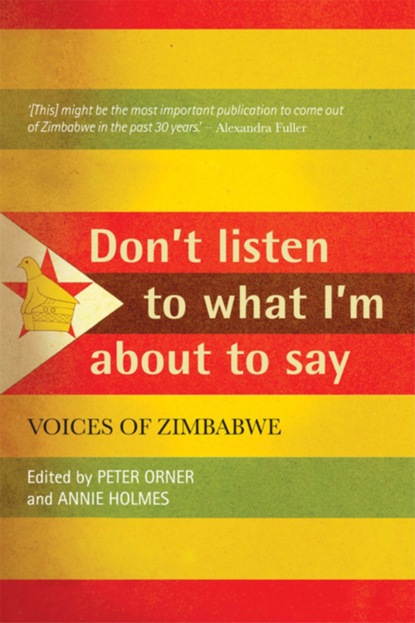Sayfa sayısı 610 sayfa
0+
Don't Listen To What I'm About To Say
Kitap hakkında
'I am Elizabeth. I wish I could use my real name, because the situation in Zimbabwe is real. It would be better for those back home to know it was me.' The situation in Zimbabwe represents one of the worst humanitarian emergencies today. This book asks the question: How did a country with so much promise – a stellar education system, a growing middle class, a sophisticated economic infrastructure, a liberal constitution, an independent judiciary, and many of the trappings of western democracy – go so wrong? It asks the people who know this complicated story best – the Zimbabwean people who have endured (and hoped) across the decades to tell their side of this story. From refugees in South Africa and Canada to those trying to continue living inside Zimbabwe, from farms, to rural Murambinda and the city of Harare, in their own words they recount their experiences of losing their homes, land, livelihoods and families as a direct result of political violence. They describe being tortured in detention, firebombed at work, beaten up or raped to 'punish' votes for the opposition. This book includes Zimbabweans of every age, class and political conviction, from farm labourers to academics, doctors to artists, opposition leaders to ordinary Zimbabweans; men and women simply trying to survive as a once-thriving nation heads for collapse. 'I am Elizabeth. I wish I could use my real name, because the situation in Zimbabwe is real. It would be better for those back home to know it was me.' The situation in Zimbabwe represents one of the worst humanitarian emergencies today. This book asks the question: How did a country with so much promise – a stellar education system, a growing middle class, a sophisticated economic infrastructure, a liberal constitution, an independent judiciary, and many of the trappings of western democracy – go so wrong? It asks the people who know this complicated story best – the Zimbabwean people who have endured (and hoped) across the decades to tell their side of this story. From refugees in South Africa and Canada to those trying to continue living inside Zimbabwe, from farms, to rural Murambinda and the city of Harare, in their own words they recount their experiences of losing their homes, land, livelihoods and families as a direct result of political violence. They describe being tortured in detention, firebombed at work, beaten up or raped to 'punish' votes for the opposition. This book includes Zimbabweans of every age, class and political conviction, from farm labourers to academics, doctors to artists, opposition leaders to ordinary Zimbabweans; men and women simply trying to survive as a once-thriving nation heads for collapse.
